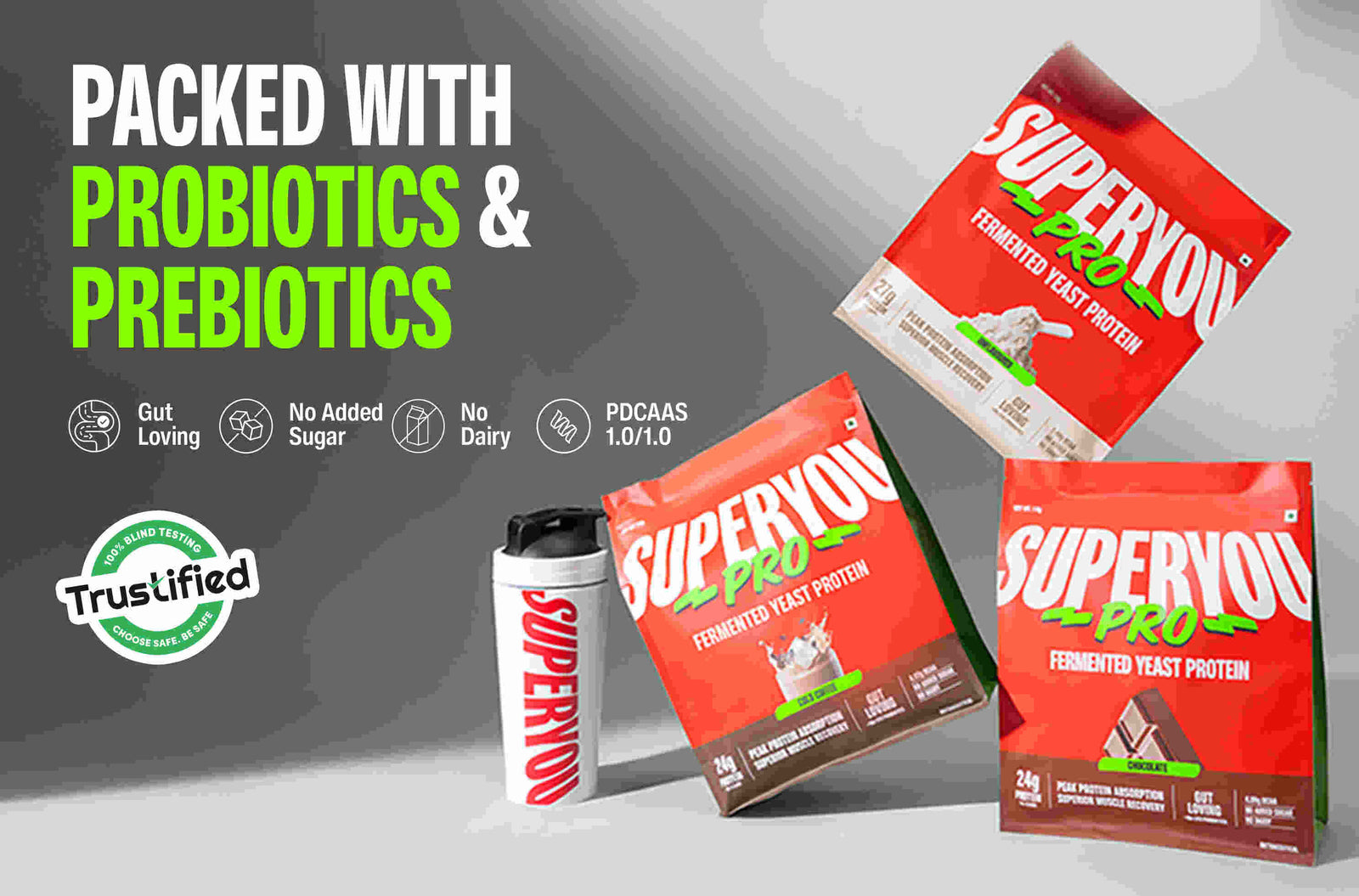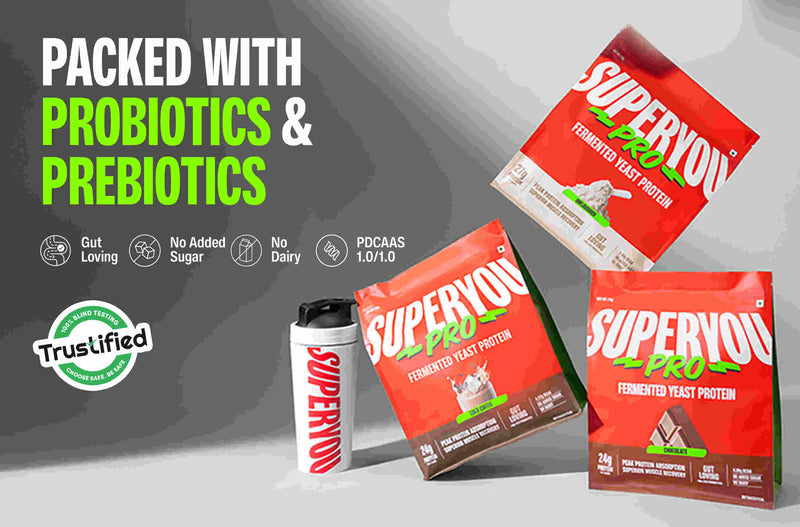Ask most people what “metabolism” means, and you’ll likely hear one version of the same answer: how fast you burn calories. But that’s only part of the picture.
Your metabolism is less about speed and more about efficiency. It’s your body’s internal operating system: converting food into usable energy, regulating appetite, building and preserving muscle, and adapting to stress. A healthy metabolism doesn’t just burn: it balances, conserves, and performs.
And because your metabolism runs 24/7, it needs inputs that match its complexity. One of the most powerful of those inputs? Protein not just in quantity, but in quality, timing, and digestibility.
This is where fermented yeast protein powder offers a clear, science-backed advantage.
What a Healthy Metabolism Really Looks Like
Before we discuss protein, let’s clarify the goal. A healthy metabolism is one that:
-
Processes nutrients efficiently, converting food into energy with minimal waste
-
Maintains lean muscle mass, which supports a higher basal metabolic rate (BMR)
-
Supports hormonal regulation, balancing ghrelin, leptin, and insulin responses
-
Reduces inflammation and digestive load
-
Adapts under pressure whether you're in a calorie surplus, deficit, or performance cycle
In short, your metabolism thrives when it gets the right tools, not just fuel, but usable, compatible fuel. That’s where the type of protein you choose makes a measurable difference.
Why Protein Matters and Why Fermented Yeast Protein Works Harder
Not all proteins support metabolism equally. Let’s break that down.
Protein helps your metabolism in three key ways:
-
Thermic Effect of Food (TEF): Protein has the highest TEF among macronutrients, meaning your body uses more energy to digest and process it.
-
Muscle Maintenance: Preserving lean muscle helps maintain a high BMR, even at rest.
-
Amino Acid Signalling: Specific amino acids like leucine play a role in regulating blood sugar, hunger, and fat metabolism.
Now consider your options:
-
Whey Protein: Complete, but digests too quickly. Offers a spike of amino acids but minimal satiety or sustained TEF. Also, dairy-based, not ideal for sensitive systems.
-
Plant Protein Blends: Inclusive, but often incomplete or heavily processed to compensate for nutritional deficiencies. Digestibility varies. Additives are common.
-
Fermented Yeast Protein: The only option that delivers completeness, digestibility, satiety, and sustained absorption, all in one ingredient.
What Is Fermented Yeast Protein?
Fermented yeast protein is derived from Saccharomyces cerevisiae a strain of nutritional yeast also used in brewing and baking. But it’s not just “yeast” protein. Through a controlled fermentation process, the yeast is converted into a high-quality protein powder that’s:
-
Naturally complete (PDCAAS ~1.0)
-
Rich in leucine, isoleucine, and valine the branched-chain amino acids that drive muscle repair and fat oxidation
-
Free from dairy, soy, gluten, and the top 8 allergens
-
Moderately digested, offering longer satiety and stable energy release
-
Low in formulation burden no need for blending, masking agents, or excessive additives
And thanks to fermentation, it’s easier on the gut and more efficiently absorbed key for metabolic consistency and nutrient utilisation.
How Fermented Yeast Protein Powder Supports a Healthy Metabolism
1. Extends the Thermic Effect of Food Without Overload
The thermic effect of food (TEF) accounts for roughly 10% of your daily energy expenditure and protein has the highest TEF among all macronutrients. But not all proteins stimulate it equally.
Fast-digesting proteins like whey may trigger a sharp thermogenic response, but it fades quickly. Fermented yeast protein, by contrast, is digested and absorbed more gradually, extending the metabolic response over a longer window. This means your body continues burning more energy post-meal without the spike-and-drop cycle that can tax insulin regulation or create appetite swings.
Its moderate digestion curve offers a more stable way to support TEF across meals especially for those prioritising fat oxidation, metabolic flexibility, or body recomposition.
2. Preserves Lean Muscle Mass and Elevates Basal Metabolic Rate
Muscle is metabolically expensive tissue. The more you maintain, the higher your basal metabolic rate (BMR), the energy your body burns at rest.
Fermented yeast protein provides a robust dose of branched-chain amino acids (BCAAs) particularly leucine, which is essential for triggering muscle protein synthesis (MPS). Unlike some plant proteins that lack leucine density or require blending, fermented yeast protein delivers these amino acids in their complete, bioavailable form.
This supports the preservation of lean muscle mass not only during training, but also in states of energy restriction or recovery, both of which are metabolically demanding.
In short: it helps you protect and sustain the very tissue that keeps your metabolism running high.
3. Enhances Nutrient Absorption Through Fermentation
Protein quality isn’t just about what’s present, it’s about what your body can actually absorb and use.
The fermentation process used to produce fermented yeast protein increases amino acid bioavailability by breaking down anti-nutrients and improving peptide structures. This means:
-
Faster recognition and uptake by the gut lining
-
Reduced competition for absorption sites
-
Less metabolic waste and strain on enzymatic pathways
For people with compromised digestion or suboptimal gut health, this can be the difference between fueling the body and simply consuming nutrients that pass through unused.
4. Regulates Appetite and Energy Through Hormonal Support
Appetite is regulated by a complex interplay of hormones primarily ghrelin (which signals hunger) and leptin (which signals satiety). Fermented yeast protein’s moderate digestion profile offers a unique advantage here.
Rather than flooding the bloodstream with amino acids and tapering off quickly (as whey might), it delivers a steady release that helps maintain:
-
Consistent satiety signals, reducing the likelihood of rebound hunger
-
Balanced blood glucose, minimising energy crashes
-
Improved hormonal rhythm, which supports metabolic stability over time
This is particularly relevant for those managing body weight, blood sugar, or cravings: all of which are tightly linked to metabolic health.
5. Reduces Digestive Burden and Systemic Inflammation
Chronic digestive stress can impair metabolism by triggering low-grade systemic inflammation, disrupting hormone signalling, and impairing nutrient partitioning. Fermented yeast protein is:
-
Free from top allergens like dairy, soy, and gluten
-
Low in processing agents, gums, or sugar alcohols
-
Inherently easier to digest due to the breakdown of complex structures via fermentation
This makes it ideal for people with sensitive gut function or anyone looking to minimise inflammatory load creating a more supportive internal environment for metabolic repair, efficiency, and adaptability.
Make your protein work for you
A high-functioning metabolism isn’t about burning more. It’s about doing more with what you consume.
Fermented yeast protein powder supports a healthy metabolism not through gimmicks, but through smart biology: cleaner digestion, higher absorption, sustained release, and muscle protection. It’s a protein source built not just for recovery or gains but for people who want daily, metabolic efficiency from their nutrition.
In a landscape full of loud claims and short-term fixes, fermented yeast protein is quiet precision and it works. Try SUPERYOU today.









